This series of articles reviews the trends identified by Sitra during autumn 2013, from a variety of perspectives. Further articles from the series can be found under the Recommended section on the right of the page and in the site’s Finnish section.
The post-World War II balance of power is going through a transition. In short, there is a paradigm shift of power from West to East, from institutions to individuals, and from hierarchy to heterarchy.
According to the American professor Amitav Acharya, our global world increasingly resembles a multiplex movie theatre which is running very different movies – but all at the same time. We are watching a screening of films by different directors, in different genres, following different rules of drama and different scripts. But the essential thing is this: the movies are screened in a digital global time, shared by everyone.
Acharya describes the current world order as “messy multilateralism”. It is made messy by the declining US hegemony, the fall in Europe’s relative importance, the relative impoverishment of Europe and the rise of China and Asia. In eleven years’ time, in 2025, the centre of half the global economy will be in Asia.
“Asia has become the main stage for future economic growth, energy sufficiency and sustainable development. China is on its way to becoming the largest economy in the world,” says Teppo Turkki, Sitra’s Leading Specialist on East Asia. “This will be a reality in 2016. The emergence of an enormous new middle class will be a significant global economic engine, and therefore, Asia is where the global rules concerning resource sufficiency, climate change and new security policy issues will be defined in the future.”
While two-thirds of the world’s photocopying machines, microwave ovens, DVD players and shoes are still manufactured in China, the country is now also the world’s largest market for wireless communications and e-commerce.
“The growth of e-commerce has already created a highly dynamic digital culture based on online use and social media,” says Teppo Turkki, contrary to many Western conceptions of China. “China can no longer be characterised as a sweatshop; for example, it orders the most industrial robots in the world. In fact, it has set its sights on being the leading country in innovation by 2020 and in science by 2050.”
A huge new middle class is currently emerging in Asia. As a result, demand is rapidly building for new services such as finance and banking, insurance coverage and healthcare, pension and old-age security services, as well as training and services related to the entertainment business. The pressure is on to develop more energy-efficient buildings, urban environments, water and waste management and maintenance services. Their quality also needs to be improved.
And according to Teppo Turkki, “Finland needs to find a way to take a share in Asia’s economic growth. It is time to roll up our sleeves. What can we offer to these lines of business? We also need to understand that Asia cannot merely be viewed as a production platform. It is a fascinating and complex combination of religions, cultures, languages, values and philosophies. Successful market entry requires in-depth co-operation, an understanding of local culture and a willingness to be an active participant in local society.”
This will also provide an opportunity to form new economic alliances. Negotiations are currently ongoing to establish a free trade zone composed of ten ASEAN member states and Australia, China, New Zealand, India, South Korea and Japan. This alliance, possibly a reality as early as 2015, would give birth to the world’s largest economic area, changing the global economic balance of power. Russia in turn is advancing its integration plans through the Eurasian Union, which includes Belarus and Kazakhstan and possibly also Tajikistan and Kyrgyzstan. In addition to a customs union, the goal is to enable the free mobility of capital and labour. A regulatory body corresponding to the European Commission, the Eurasian Economic Commission (EEC), has already been established.
Rapid change poses challenges
While Asia keeps building up strength on the basis of a very different system of its own, Western democracies are facing completely new types of challenges. The changes occurring in Finnish society are huge. Our administration, economy and participation are in turmoil on almost a daily basis. Reform processes are at a standstill, the prolonged economic crisis in Europe is stirring up feelings of powerlessness, and our two most recent elections have turned the political system on its head.
“At the same time, we are experiencing a broader social change in which people are playing an increasingly important role,” says Sitra’s President Mikko Kosonen. “It is becoming hard for institutions to keep up with the pace. This will challenge the capacity for renewal of the political system and democracy.”
Various methods of participation based on locality and concrete action are gaining popularity. Examples include independent production of food or energy, urban activation programmes and social media-driven action; the latter is already having a direct impact on political decision-making. Globally open data, open source and open science, as well as various forms of peer support and activism are profoundly affecting the way we do things. How can institutions transform themselves in order to adapt to modern requirements?
Kosonen’s response is: “Finns, like many other Western countries, are prisoners of their own success, achieved through a model of their own creation. This is preventing us from identifying and exploiting new opportunities to the fullest. The situation cannot be blamed on any single person or player. Instead, it is a natural continuation of the leadership models and operating methods of the industrial age. They have served us well until now, but some of them have become hopelessly outdated. Instead of desperately trying to control our reality with old tricks and leadership wisdom, we should be bold and construct a new vision and new operating methods with potential for success in the future.”
However, there are many obstacles on the path to reform. Economic and political interests, established networks, the complexity of problems, hidden resources and thought models easily result in short-sighted, selfish decisions that are detrimental to society’s well-being as a whole.
“In my opinion, the more wretched the problems and needs for change we are facing, the more important the way things are done becomes! Systematic experiments must indeed be made part of the public administration’s operations. Small-scale political experiments may help avoid the risks associated with major reforms and speed up decision-makers’ learning processes. Consequently, we should quickly lift those legislative obstacles currently preventing swift experiments,” Kosonen says.
Structural reforms are comprehensive by nature, and the right solutions can often only be found by means of broad-based co-operation and practical trials. Kosonen sums up the recipe for transforming the existing operating models: “What we need is a new kind of leadership and public administration. Solutions will not be reached by giving orders through vertical chains of command in silos. Instead, development must be collaborative and cross-sectoral, and take place from bottom to top.
“In this new operating culture, the role of leaders is to build trust and involve people actively by providing them with frameworks, incentives and the tools for participation. Building trust always requires reciprocity. One cannot make demands on others if one is not willing to give up something important in return.”
Related material:
Forbes: Airbnb And The Unstoppable Rise of the Share Economy, 23 Jan 2013
Mikko Kosonen, The power of vision, Sitra’s blog series Towards sustainable well-being
Sitra’s project Governments for the Future
Sitra’s Synergise Finland forum: New Democracy web pages
In Finnish:
Markku Kivinen: Venäjä haastaa EU:n omalla unionilla, HS Vieraskynä 7 July 2013
Suomen elinvoiman lähteet, ed. Teppo Turkki and Aarne Nurmio, Sitra 2010
Teppo Turkki: Katse itään – Suomi kirjoitettava sisään Aasian nousuun, Sitra 2013
Vesa-Matti Lahti: Kaikki jakoon, Sitra 2013
Follow on Twitter @AmitavAchary
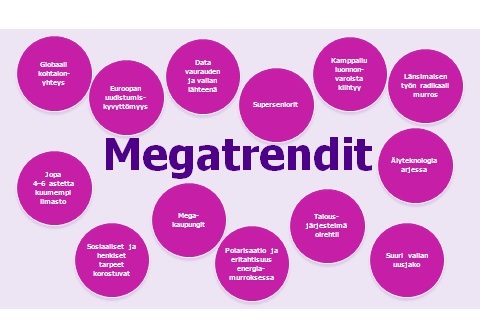
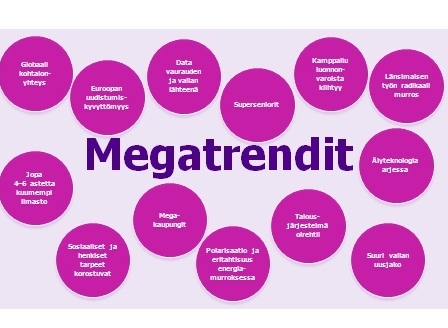
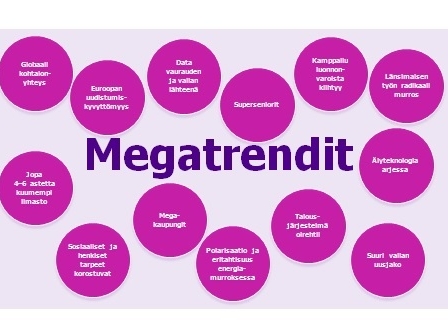

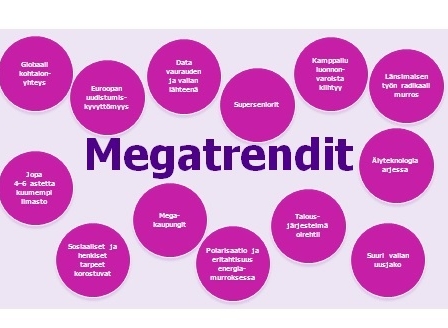
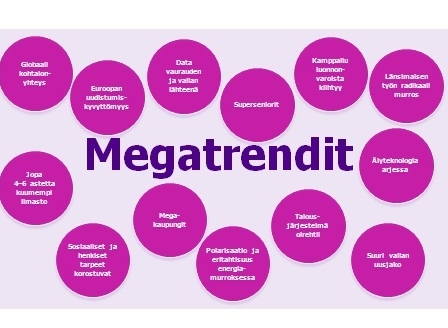
Recommended